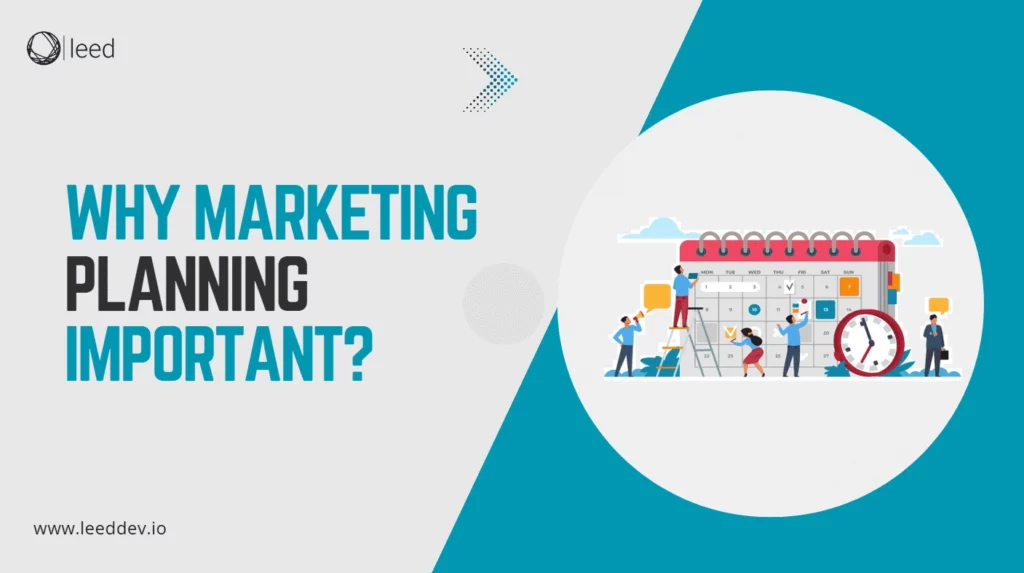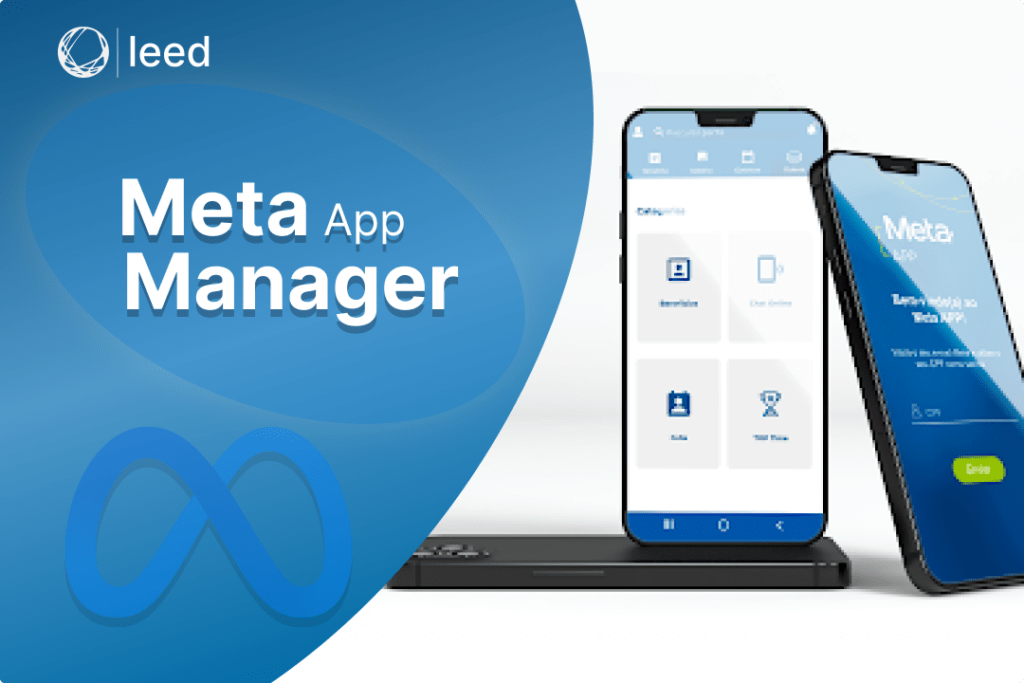Every company has one thing in common that is they started small. Starting small is the base of every business. One of the most important keys to growing a business is having a solid marketing plan. A great marketing plan helps launch new products, grow your audience and promote your brand effectively.
Next thing is why marketing is essential for your business? Basically marketing attracts customers and increases sales. Without a marketing strategy, your efforts may fall short. When creating a marketing plan focus on key elements like your target audience and strategies to grow your business. With the right approach, you’ll set your business up for success.
If you are ready to take your business to the next level, Leed Software Development is here to support you! Our expert team is dedicated to transforming your ideas into reality. Together, let’s build a brighter future for your business!
What is Marketing Planning?
Marketing plan is a document that outlines a company marketing goals. It can be short or include detailed campaign plans from various teams. Regardless of size its purpose is to organize and measure a business marketing strategy.
Essentially marketing plan is a blueprint that shows how you will encourage customers to buy your products or services. It includes strategies, activities, cost and expected results, helping businesses stay on track without distractions. You can create marketing plans for a month, a quarter or a year. Plans can be updated based on feedback to align with the company’s sales objectives.
Main Types Of Marketing Plan
Before discussing why marketing planning is important lets discuss main types of marketing plan:
| Marketing Plan | Focus | Unique Element | Key Success Metric |
| Annual Plan | Scheduling campaigns throughout the year and measuring success over time | Big-picture view of the year | Continuous improvement over time |
| Content Plan | Prioritizing content creation, channels, and audience engagement, focusing on “what” & “how” | Targeted messaging across platforms | Audience engagement & conversion rates |
| Product Launch | Building buzz and successfully introducing a new product/service to the market | Big splash, countdown to launch | Product adoption & market response |
| Social Media Plan | Creating ad and promotional content specifically for social media platforms | Creative, platform-specific content | Follower growth & campaign reach |
Quick Tips for Picking the Right Plan:
✔ Annual Plan: Great for businesses seeking steady, measurable growth.
✔ Content Plan: Perfect for brands with heavy focus on storytelling.
✔ Product Launch Plan: Ideal for exciting new products or services.
✔ Social Media Plan: For brands looking to dominate online spaces with viral campaigns.
8 Reasons Why Marketing Planning Is Important
Some of the main reasons and purposes of marketing planning are given below.
Sync Goals with Company Objectives
To ensure your marketing plan is effective, start by reviewing the organization’s goals. This basically supports the company’s overall objectives and keeps performance on track. Leaders should clearly communicate these objectives, allowing you to set departmental goals accordingly.
For example, if the company aims to lead the industry, your goals might include creating valuable content, such as blog posts or white papers, to educate the target audience.
Ensures Consistency
A marketing plan keeps your entire team aligned, regardless of its size. It provides clear instructions for everyone to follow, ensuring all efforts contribute to the company’s business goals.
Without a cohesive strategy, your initiatives can become fragmented and ineffective. For instance, while some team members focus on social media and online content, others may prioritize print and radio ads, leading to mixed messages and wasted resources.
Align Budget with Marketing Goals
Your marketing plan is an opportunity to clarify how the budget supports specific marketing efforts. By outlining the resources you need, you can secure the funding necessary for successful campaigns.
Clearly detail how the budget will help achieve your outlined objectives and emphasize the impressive results you aim to deliver.
This understanding allows leadership to better estimate the potential return on investment from these initiatives, ensuring alignment and support for your marketing strategies.
Reduce Confusion
A marketing plan helps clarify multiple business objectives and prevents confusion. It serves as a benchmark to ensure you’re meeting your marketing targets and keeps your strategies aligned with your initial goals.
For example, if your goal is to market ten items per day, a clear marketing plan gives your team the exact strategies to follow. This reduces time spent in brainstorming sessions and follow-up meetings, allowing them to focus on executing the plan effectively and efficiently.
Assist Other Departments in Crafting Their Plans
Other departments can use the marketing plan as a valuable reference when developing their own strategies. Company leaders can review it to create macro-level organizational goals for each team. For example, if the marketing plan highlights the need to build trust and strong customer relationships, executives might guide the customer service team to enhance the customer experience with a more positive and unique approach.
Helps Stay on Track
A solid marketing plan gives your company the reality check it needs. With multiple objectives, it’s easy to lose focus. A clear plan keeps your strategies aligned with your original business goals and serves as a benchmark to ensure you’re hitting your targets.
Understand Your Target Audience
Marketing plan helps identify target audience and tailor messages to meet user needs. This is crucial for your sales team to communicate effectively and understand how your product or service fits the customer’s needs. By conducting in-depth research on factors like geography, culture, and behavior, you can make informed decisions and segment your market. This allows you to wisely use resources and customize messaging for different customer groups, maximizing your chances of success.
Be Proactive, Not Reactive
A marketing plan helps you think ahead, understanding both your target market and how to connect it with your products. It encourages proactive decision-making, allowing you to anticipate challenges and address them before they arise, rather than reacting to problems as they occur.
How to Make a Marketing Plan?
Next thing you need to know is what’s the marketing planning process. Follow the 5 easy steps to know the components of marketing plan and to create an effective marketing plan.
Gather Essential Documents
Start by collecting all necessary documents, including financial reports, sales data, and market insights. Ensure you have the latest operating budgets, profit and loss statements, sales figures by product and location, and lists of new products/services with their target audiences. You’ll also need competitor analysis, demographic data and market trends to set stage for informed planning.
Identify Threats & Opportunities
Assess the current market landscape, including market size, distribution channels, and sales history. Identify both threats and opportunities, such as new trends, demographic changes, or emerging competitors, to understand your business environment better and exploit favorable conditions.
Set Clear Objectives
Define specific, measurable goals you wish to achieve within a set timeframe. For example, if your business maintains 80% gross revenue, aim for a 20-25% increase. Each objective should detail the targets and outline the tactics you’ll employ, such as social media marketing, local advertising, or email campaigns.
Establish a Marketing Budget
Assign a budget to your marketing activities, adding 25% to initial estimates to cover unforeseen costs. Collaborate with your team to finalize figures and allocate funds wisely. Designate someone to monitor the budget closely, ensuring every dollar spent contributes to your goals.
Create an Executive Summary
Write a concise executive summary to give an overview of your marketing plan. Though it appears at the top, draft it last, summarizing the plan’s key points in clear, simple sentences. Highlight the main strategies and objectives to provide a quick, insightful snapshot of the entire plan.
Difference Between Marketing Strategy and Marketing Plan
| Aspects | Marketing Strategy | Marketing Plan |
| Definition | The “what” and “why” of marketing. | The “how” and “when” of marketing. |
| Focus | Defines overall goals and direction. | Outlines specific actions and timelines. |
| Purpose | Sets the vision and approach. | Provides a detailed execution roadmap. |
| Includes | Goals, target audience, value proposition. | Tactics, budgets, schedules, and tasks. |
| Timeframe | Long-term outlook. | Short-term steps to achieve strategy. |
How Can Leed Software Development Help You?
Leed Software Development stands out as the best marketing planning agency by offering tailored strategies that drive results. From crafting compelling ads and engaging content to leveraging geo-targeted campaigns on platforms like Google Ads and Facebook we ensure your brand reaches right audience at right time. Our expert team focuses on data-driven decisions, creative solutions and fast execution, helping you boost visibility, attract customers and grow your business effectively.
Now the thing is what will you get by contacting us? With us you can get the given services:
✔ Customized Solutions: We tailor our strategies to meet the specific needs of your business, ensuring that the market plan is aligned with your goals and audience
✔ Data-Driven Insights: We utilize data analytics to craft market plans based on real-time trends, consumer behavior, and market analysis
✔ Omnichannel Approach: Our market plans integrate multiple channels, such as digital, social and traditional marketing to maximize engagement with your target audience.
✔ Innovative Strategies: We stay ahead of industry trends by adopting innovative tools and techniques ensuring your business remains competitive
✔ Targeted Advertising: We use geo-targeting and precision advertising across platforms like Google Ads and Facebook Ads to reach the right audience with optimized spending.
Still waiting? Contact now and get exceptional services as well as results!




